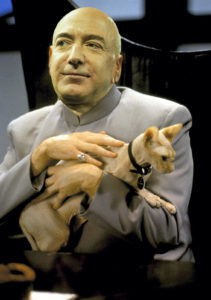AI
Wildly Optimistic Assumptions for a Post-Pandemic Future: Sci-Fi Doomsday or Utopian Dream?
Published
4 years agoon
Plenty of reasons for Pessimism but Huge Sudden Changes are where we’ll find the greatest Opportunities
The film clip above, featuring the Steven Spielberg directed film based on the sci-fi book by Ernest Clines, is built on a fairly familiar and, lately, believable premise. In the year 2045 (or sooner from the looks of things) all our human foibles and follies have devastated the world landscape, both physically and economically. Global warming has taken a toll and disasters we now know so well, such as pandemic outbreaks and economic catastrophes, are recent history and shape the reality at hand.
The story takes place in the world of young virtual reality explorers. And from there the plot is a pretty standard fantasy exploration of the potentials and drama that this backdrop produces.
This and other dystopian works of fiction are suddenly ringing true in a new way, and on different levels, since the world has been on lock-down as we battle the novel coronavirus. There is a feeling of a world on the verge of collapse, with an unknown and very uncertain future, and talk of an economic malaise with almost no historical precedent about to unfold, if you accept worst case scenarios.
Yet, using wild flights of imagination and optimism there are hidden bright spots and silver linings that might arise, not accounted for in this film or other works of dystopian art.
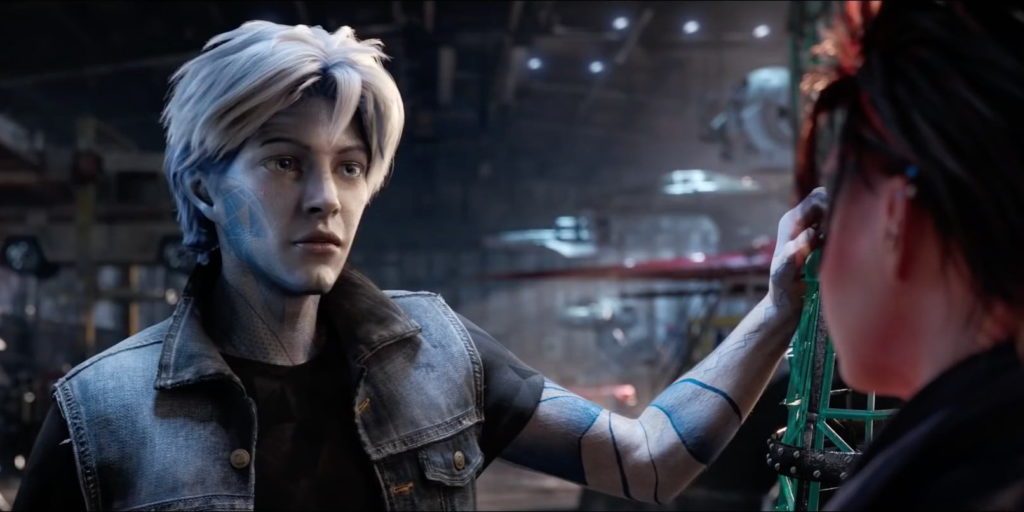
An Idea so Big and Radical it is Hard to Wrap our Heads Around it no matter how hard we try
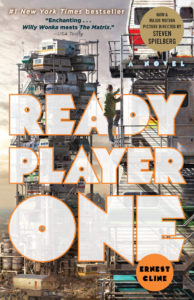
and at the same time help Lynxotic
and all independent local bookstores.
Also on Amazon
What if the twin terrors of the covid-19 Pandemic and the possible economic collapse that may follow are actually a kind of gift to the world and humanity? What if this is the mother of all opportunities, like some wildly fantastic movie plot, where the wake up call from the cosmos comes at exactly the perfect moment to, well, wake us all up?
It’s easy to forget that, before we all became consumed in pandemic survival mode, there were already enormous changes and challenges afoot, a they were not small potatoes.
Global warming and climate related disasters were beginning to take center stage in political and social thought. Greta Thunberg was Time’s Person of the Year, and, for the first time, climate deniers (generally paid shills for the oil industry) were no longer being taken seriously.
All that now seems like a distant memory, but what has changed? A lot and also nothing. The threat of global warming and the urgency to stop carbon emissions and begin a transition to sustainable energy is no less pressing, regardless of our current preoccupation with stopping the pandemic.
Skys around the world have turned blue and clear while traffic is a fraction of the previous norm
Though many have warned the pollution and carbon burning will resume with a vengeance, once the quarantines are lifted, there is nevertheless a psychological effect of seeing and experiencing the beauty of clean air and reduced traffic that is fascinating. Eerily similar to scenes in the film 12 Monkeys, wild animals roam freely in urban centers.
Like a good omen or an invitation to positive change, the idea that nature can bounce back so quickly could be seen as a clarion call to change. Of course, a year from now we could see a world where fossil fuels are even more entrenched, due to economic desperation, where societies take great strides backwards in the ability to communicate and all the problems from the past and present accelerate into a final snowball bound for hell.
But what if something else happens?
What if the drastic measures, like the world wide lock-downs, and the economic stimulus actions attempting to stave off the potential economic catastrophe, indicate the potential for entire nations and even the entire world to work together in times of great need?
Virtual and Enhanced Communication as Tool for Crisis Adaptation
One of the interesting and unforgettable earmarks of the current crisis lifestyle is the switch in our lives from “real” lives to internet lives and virtual meetings and events. TV shows are staging networked broadcasts using FaceTime and Zoom, with the various actors and talking heads streaming from their private quarantine stations. We communicate with each other privately using the same technologies and non-contact methods.
What if this foreshadows a revolutionary change in how we use technology to improve our lives, accelerate communication, increase productivity and prevent the future from being an ecological disaster of biblical proportions?
What if all of us learning to adapt to a life with less unnecessary travel, while at the same time studying and inventing solutions for those problems is exactly what we need to be doing? What if we all need to collaborate on ways to stop the spread of disease, certainly, but also need to find ways to seamlessly transition to solving the bigger underlying pre-existing issues in order to save ourselves and our planet?
What if we were all forced to stay inside and use our computers to communicate. And what if we were forced to learn new “jobs” and ways to survive financially? And what if we could engage people around the world to work from home solving the real problems facing humanity, instead of flying and driving around, burning carbon, chasing the latest greed-driven suicide gold rush?
Ideas like universal basic income will not be optional when 50% of the world is unemployed. But if the income generated by the robots and the energy produced by solar, wind and other clean, sustainable energy sources are available and not in the hands of corrupt politicians, Bezos and Zuckerberg, and the fossil fuel companies, then why not?
These kinds of “radical” solutions will have all sorts of political and greed-driven opposition, of that you can be sure. But, as with the coronavirus, when faced with an insurmountable obstacle, like a rapidly spreading deadly virus that does not spare victims just because they have money or power, things change fast. Really fast.
I have always said, climate change deniers will stop trying to convince people it’s a hoax once Miami and New York are underwater. In a different way, we are already there. What we are living through is like a test run and a wake up call that can help us to prepare for the real and necessary changes to come.
Having the Future Thrust Upon you is not as bad If you Look Forward to Change
So why not make the most of it? Many people are. Reading books, particularly serious books for learning new ideas and thinking outside the box, are having an online sales boom. People are using the time and freedom to set their own schedule and goals, and considering career paths and constructive engagement in ways they might have never otherwise even considered.
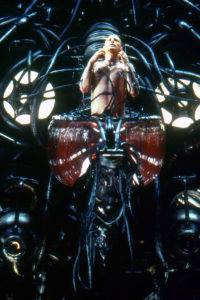
sub-consciously show us the horrors of the future
– but instead what they show is a symbolic representation
of the present and the past. Humans are imprisoned
for life in “farms” and live only to produce energy
– the food fed to babies locked in pods
is a sticky black goop said to be the liquified remains
of the dead, but is, clearly just a very familiar substance
already enslaving us all: crude oil.
Perhaps, looking back from a better future made possible by this pandemic, we can see a reality where the greatest obstacles to change were the addiction to failed behaviors, failed infrastructures and suicidal greed that was considered “normal” in a dying world. If a larger force makes those things impossible or less viable then it should be welcomed with open arms.
There is an existing world infrastructure based on fossil fuels and greed that has been artificially propped up by political and economic forces for far too long. Now that entire system is collapsing on itself. The coronavirus is just a pin prick to the bubble of stupidity and greed that has been there all along.
Those of us that can see and imagine a future, not built around and based on that failed system, will have the opportunity to use our computers and virtual communication systems, primitive as they are at this stage, to communicate with one another and discuss ways to find a new beginning. That new beginning is already starting with blue skys and clean air across the world. Leaders not motivated by greed and yet wielding power like Elon Musk are putting enormous energy into solving the carbon burning dilemma and replacing it as quickly as possible with sustainable energy.
The economic upheaval to come must be seen as an opportunity to replace the old structures with new and better solutions. The recent extreme acts of the government show at least a willingness to try things never before attempted. Many will not work. Meanwhile, enormous, radical change is no longer a science fiction dream but an unavoidable reality.
Let’s embrace the dream and face the future with the wildly optimistic idea that changes for the future do not have to be dystopian. They can be Utopian. Why should we settle for anything less?
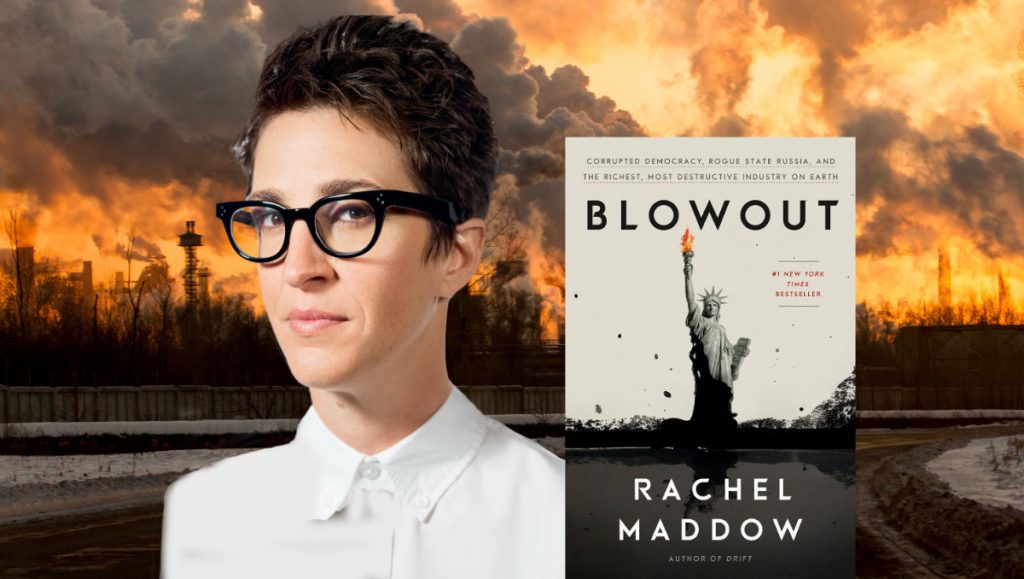
Read more: World Reading Marathon Underway- Streaming and Binge-watching still huge but Books are Next
Find books on Big Tech, Sustainable Energy, Esoteric Spirituality and many other topics at our sister site: Cherrybooks on Bookshop.org
Enjoy Lynxotic at Apple News on your iPhone, iPad or Mac
Lynxotic may receive a small commission based on any purchases made by following links from this page.

